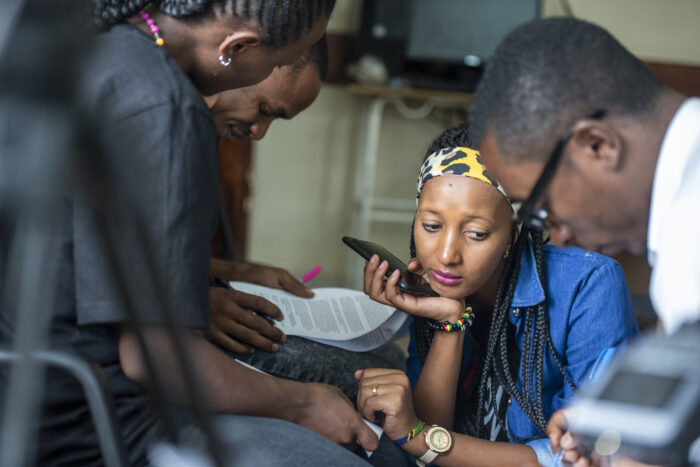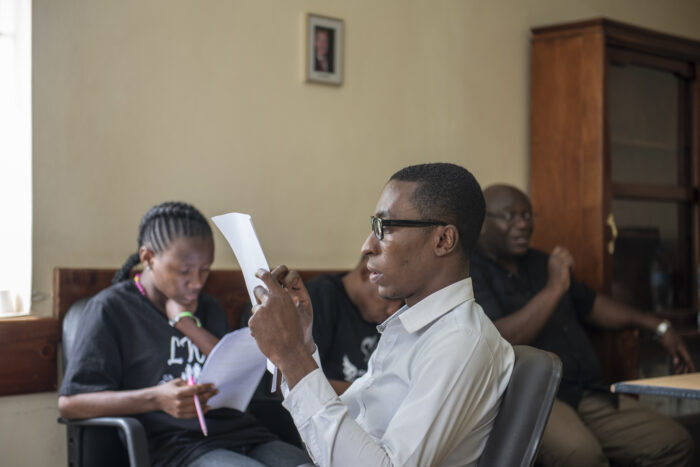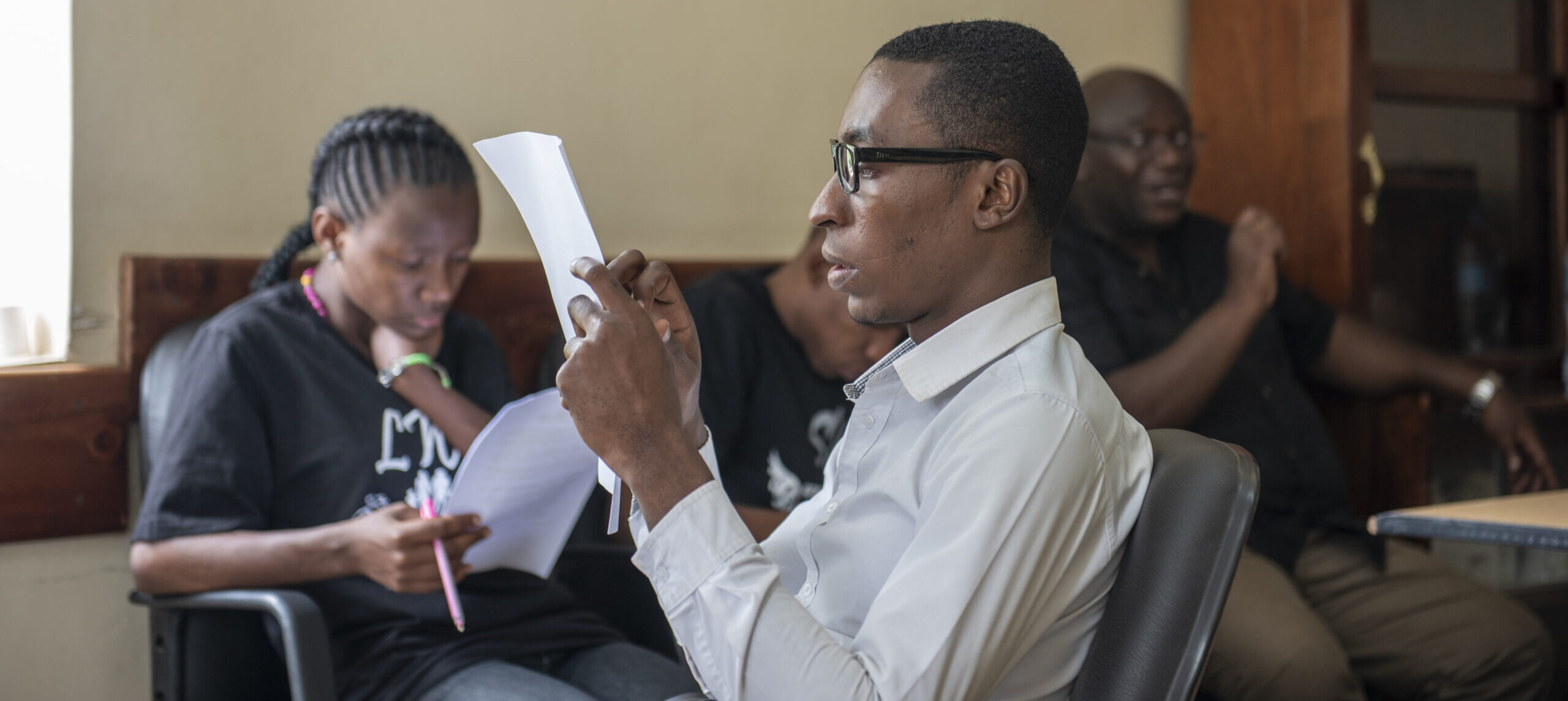“I would like to tell my fellow youth and the world in general what I wish I had known,” Kevin says, “that HIV is not death. You can live with HIV/AIDS and still fulfill your dreams.”
Kevin is a 28-year-old peer educator, brother, and friend, and is living with HIV in Arusha, Tanzania.
“In 2002, my mother died,” Kevin says. His younger sister, an infant at the time, was taken in by an aunt while his older brother attended school in another town.

“Around that time my health also started becoming poor,” Kevin says. “I was the only child left with my father as I was mostly sick. My father was in charge of taking me to the hospital. He used to do everything for me at home. He was a mechanic and always did his best as a single father. We were very close.”
While taking care of Kevin, his father was suspicious that his illness may be related to HIV.
“In 2006 my father brought me here (St. Elizabeth’s Hospital) and I was tested for HIV. The results came out positive,” says Kevin. Despite learning of his son’s status, Kevin’s father decided to hide the results from him. He did not want to scare his 13-year-old son or subject him to the stigma he might face if his status were well known. “I was so curious and kept on asking why I was taken to the hospital and so on but my father told me that I had chest problems, and that was why I was taking medication.”
When his teachers started discussing the signs and symptoms of HIV, Kevin grew suspicious.
I would like to tell my fellow youth and the world in general what I wish I had known: You can live with HIV/AIDS and still fulfill your dreams. Kevin, Arusha, Tanzania
“I felt I had the disease but I never wanted to accept the reality,” Kevin says. The reality, as he understood HIV, was that he was gravely ill, that he may die soon, and that he may not be able to have a family. He also knew there is no cure.
“I did not want to accept it,” says Kevin, “because I was never told. I assumed but I did not want to believe.”
“On top of all of this, I felt alone because I thought I was the only one with HIV/AIDS [in my school]. It reached a point that I stopped taking my medication. My CD4 cells dropped, and at their lowest I had a total of 15 CD4 cells.”
CD4 cells help your body fight illness, and HIV attacks these cells. A normal CD4 count ranges from 500 to 1,400 cells per cubic millimeter of blood, but as soon as this number drops to 200 or less, the body becomes vulnerable to opportunistic infections, such as TB. With unmanaged HIV, CD4 cell counts can drop dangerously low, making otherwise mild and treatable conditions deadly. With 15 CD4 cells per millimeter of blood, this is what was happening in Kevin’s body.
Fortunately, Kevin’s nurse stepped in. She finally explicitly confirmed his HIV status to him. She explained how serious his condition was, but that the medication also can work very well when taken correctly.
While Kevin’s nurse helped him acknowledge his status, it was his peer support group that helped him accept it.

“I finally accepted myself because we were encouraged a lot by Mama Lyimo. She founded this club for young people living with HIV to get educated and find solace in one another. She used to tell us that we will grow older, become successful, we will have families and study just like other children so that helped me to accept myself and my health.”
“Through the club I also met other children who have HIV, just like me. I saw so many of them happy and healthy, and they helped me see a new picture: that there is a possibility for me to be like other people who are not infected; that I could have a family like other people.”
Kevin adhered to treatment and recovered. He was a bright student across many disciplines, and now holds a bachelor degree of education. He is now a leader of this peer support club, and uses his degree and lived experience to support other young people as they face their own challenges with disclosure, education, hope, acceptance, and belonging.
I want one day to return the favor and help children and other people just like how I was helped. Kevin, Arusha, Tanzania
“I had a tough time growing up and I do not want other people to face the same difficulties or worse. That is why I educate people, and advise them to use their medication well.”
Kevin has grown and succeeded far beyond his greatest fears when he first suspected he may be living with HIV, but Kevin is sure there is even more to come.
“I like to help people,” Kevin says. “My dream is to help children and open an orphanage center. When I was a child most of my time was spent in the hospital, so I want one day to return the favor and help children and other people just like how I was helped.”




